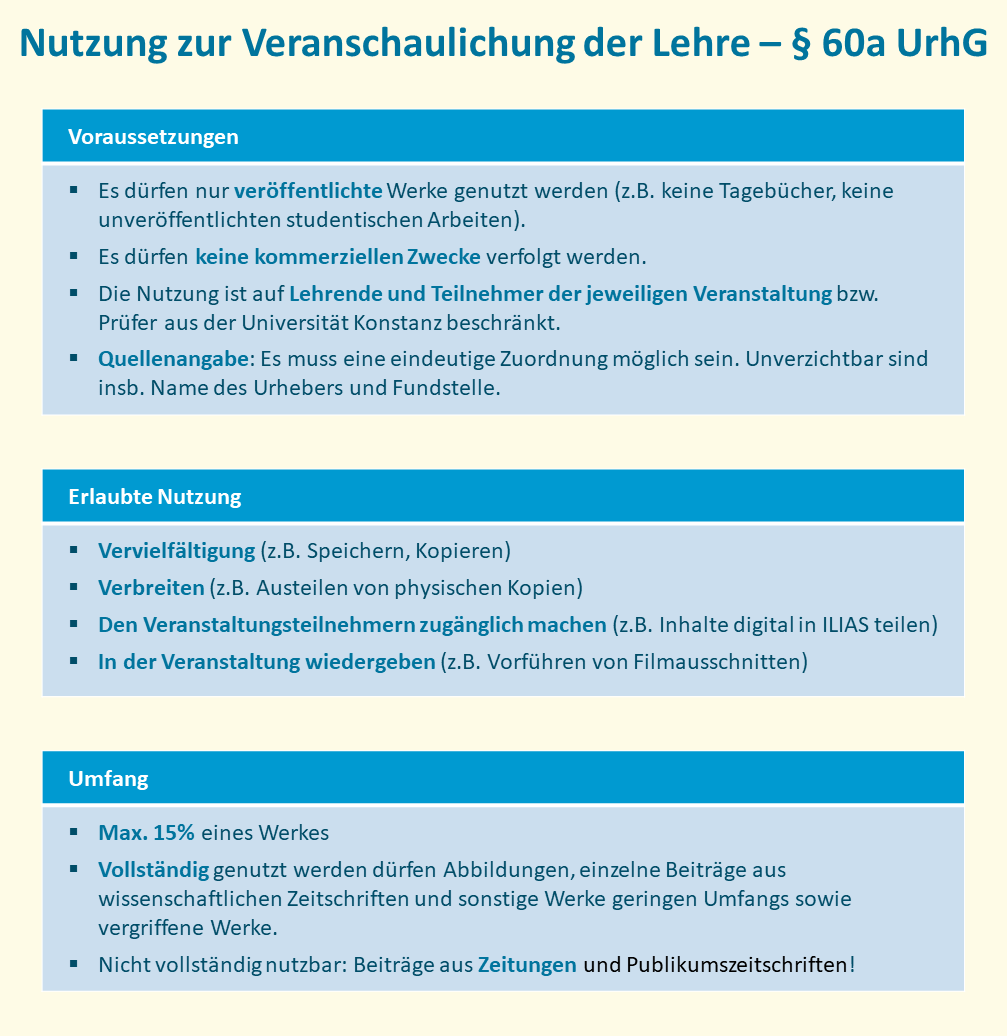It is permitted by law for universities and other educational institutions to use the works of others for teaching purposes under specific conditions:

Image: Brettschneider / Braun: Legally permitted usage for teaching purposes / CC BY 4.0
What is the case with e-learning, preparing for and reviewing classes as well as exams?
The permitted use of materials not only applies to the course itself but also to preparing for and reviewing after individual classes during the course period. § 60a UrhG also applies to the use of material in exams – including preparation for and reviewing of exams. It is not permitted, however, to use material for entertainment purposes (e.g. playing music during the “Lange Nacht der Wissenschaft” event or watching a film during a Christmas party for a seminar). It is also not permitted to make material available for students in ILIAS for the entire period of study.
What limitations apply to the amount of material?
Yes, generally no more than 15% of a published work can be used.
There is an exception for out of print works, e.g. works that are not available for purchase, as well as for short works (e.g. images, articles in scientific journals). In such cases, the entire work can be used. This is, unfortunately, not the case for articles in newspapers!
“Short works” are defined as:
- Printed materials (e.g. scripts) up to 25 pages in length
- Videos lasting up to 5 minutes
- Music lasting up to 5 minutes
Certain materials may not be used at all, including music notes and live recordings of concerts, readings, theatre performances and film screenings.
Is breaking the copy protection on CDs/DVDs permitted?
Some companies use copy protection on their content. This can make using the material for teaching purposes virtually impossible. However, it is not permitted to simply “hack” the copy protection. Instead, you have the right to request a solution from the copyright holder. In order to do so, you can, for example, contact the company selling a CD or DVD and request they remove the barrier as per § 60a in connection with § 95b UrhG.
